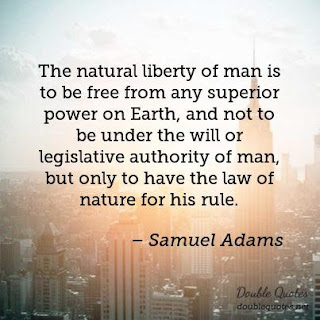“Human beings have a universal right to determine their own future.”
Freedom is an idea largely obscured by misuse and misconception, in contrast to its central importance to civilized and humane life. Whether it is in our economy, politics, history or personal relations, freedom is a precondition. However, as we abuse and trample it through opportunism and cloud its meaning through ideologies, it is becoming a spent and meaningless concept within our reality.
Nevertheless, regardless how clouded it may be at the moment, we carry an innate connection to its essence. Most people are drawn to the positive emotion brought by the urge of attaining it, an urge often subject to manipulation throughout history.
After all, history is about the struggle for freedom. Countless lives have been wasted fighting for the freedom to explore and use new lands, for protecting their property, for their ability to speak and move freely, for the freedom from coercion, etc. We’d like to think that at this time of democratic, digital, real-time, progressive [replace with any modern inverted buzzword] society we have the greatest extent of freedom in all of history. But it is really so? Considering the constantly escalating fear-mongering, atrocities, state oppression, cultural strife, physical aggression, coercion and fear that is enveloping human society, we can logically put in question the state of freedom in today’s society.
Definition of Freedom
To examine this question we have to start from the basic meaning of freedom. I’ll venture a definition of freedom that would hopefully resonate and stand up to rational scrutiny. Freedom is the ability to exercise one’s will over one’s body, mind and property. The conscious and conscientious and thereby *free will* is an innate trait of sapient humans – homo sapiens. It is the trait that distinguishes homo sapiens from un-sapient life forms. By integrating conscious thought, emotion and the resulting action, the free will is the trinity that defines us as human. Thus freedom to exercise our will is freedom to be human. Free will, or freedom is the measure of man.
Origin
As all life forms, we come to this world with a sovereign right to be as we have been created – in our case human, i.e. to exercise our will over one’s own mind, body and property. It is up to one’s will how to use or change the state of their mind, body and possessions.
Thus within a universe based on the equal and universal right of sentient beings to be or to exist, the freedom of exercising the human will is a first principle.
Universality
Furthermore, this principle, as any other, must be universally applied to all humans and all relations because only if it is equally applied to all cases, it may be applicable to a particular case. Freedom by default is an absolute universal concept. It either applies to all, or to none. Failure to apply it universally results in restrictions to applying it individually, negating the freedom of someone to exercise their will and consequently their humanity. For example, as an individual infringes on the freedom of others, the individual sets the precedent for his own freedom to be treated the same way as the circumstances change.
Culture
Accordingly, our culture has taught us to apply the principle of freedom to all of our social relations,… almost all.
Culture has written and unwritten rules. The free exercise of human will is upheld by our unwritten natural rules/laws, as it is a commonly held principle that our private and professional relationships are voluntary, i.e. based upon free will. Such natural rules say that we shouldn’t do onto others what we don’t want done to ourselves. Consequently this culture condemns inflicting or threatening of bodily harm, stealing, lying or insulting of another.
Imperfection
However our man made written rules largely trample this principle. Firstly their application is unconditional to the will of individuals who reside within the borders of a political territory, i.e. there is no voluntary relation or opt in/out. Secondly, those man made rules are systemically enforced by mass coercion or direct physical aggression. Such a system violates freedom by default. The right for such violation of freedom by particular individuals is justified by a supposed delegation by the citizens of such a right to the said individuals. However, can one delegate a right that he does not have?
Taking into account such a fatal imperfection of man made jurisdiction that is leading to systemic violation of freedom and thereby on basic humanity, we can conclude that such a man made system has a dehumanizing effect on society as a whole, infringing upon the sovereign right to be/exist as a human.




2 Replies to “On Freedom”